
Kód: 04558005
How Taiwan Became Chinese
Autor Tonio Andrade
At the beginning of the 1600s, Taiwan was a sylvan backwater, sparsely inhabited by headhunters and visited mainly by pirates and fishermen. By the end of the century it was home to more than a hundred thousand Chinese colonists, ... celý popis
- Jazyk:
 Angličtina
Angličtina - Vazba: Pevná
- Počet stran: 324
Nakladatelství: Columbia University Press, 2008
- Více informací o knize

Mohlo by se vám také líbit
-

Reckoning
465 Kč -
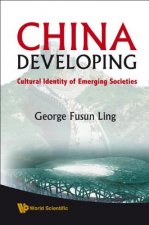
China Developing: Cultural Identity Of Emerging Societies
1961 Kč -
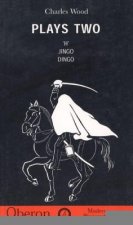
Wood: Plays Two
711 Kč -

Feasts, Fasts, Famine
1071 Kč -

Blood of Heaven
338 Kč -

After Fellini
901 Kč -

Being as Communion
5073 Kč -

Hardcore Java
755 Kč -

Green and Purple Belt Guide Book
291 Kč -

Reader's Repentance
1595 Kč -

Modernism on Sea
762 Kč -

Beat Dyslexia
1404 Kč -

Ghost Lover
294 Kč -

Thomas Wyatt
579 Kč
Dárkový poukaz: Radost zaručena
- Darujte poukaz v libovolné hodnotě a my se postaráme o zbytek.
- Poukaz se vztahuje na celou naši nabídku.
- Elektronický poukaz vytisknete z e-mailu a můžete ihned darovat.
- Platnost poukazu je 12 měsíců od data vystavení.
Více informací o knize How Taiwan Became Chinese
Nákupem získáte 250 bodů
 Anotace knihy
Anotace knihy
At the beginning of the 1600s, Taiwan was a sylvan backwater, sparsely inhabited by headhunters and visited mainly by pirates and fishermen. By the end of the century it was home to more than a hundred thousand Chinese colonists, who grew rice and sugar for export on world markets. This book examines this remarkable transformation. Drawing primarily on Dutch, Spanish, and Chinese sources, it argues that, paradoxically, it was Europeans who started the large scale Chinese colonization of the island: the Spanish, who had a base on northern Taiwan from 1626 to 1642, and, more importantly, the Dutch, who had a colony from 1623 to 1662. The latter enticed people from the coastal province of Fujian to Taiwan with offers of free land, freedom from taxes, and economic subventions, creating a Chinese colony under European rule. Taiwan was thus the site of a colonial conjuncture, a system that the author calls co-colonization. The Dutch relied closely on Chinese colonists for food, entrepreneurship, translation, labor, and administrative help. Chinese colonists relied upon the Dutch for protection from the headhunting aborigines and, sometimes, from other Chinese groups, such as the pirates who ranged the China Seas. In its analysis the book sheds light on one of the most important questions of global history: how do we understand the great colonial movements that have shaped our modern world? By examining Dutch, Spanish, and Han colonization in one island, it offers a compelling answer: Europeans managed to establish colonies throughout the globe not primarily because of technological superiority but because their states sponsored overseas colonialism whereas Asian states, in general, did not. Indeed, when Asian states did, European colonies were vulnerable, and the book ends with the capture of Taiwan by a Chinese army, led by a Chinese warlord named Zheng Chenggong.
 Parametry knihy
Parametry knihy
Zařazení knihy Knihy v angličtině Humanities History Regional & national history
2504 Kč
- Plný název: How Taiwan Became Chinese
- Podnázev: Dutch, Spanish, and Han Colonization in the Seventeenth Century
- Autor: Tonio Andrade
- Jazyk:
 Angličtina
Angličtina - Vazba: Pevná
- Počet stran: 324
- EAN: 9780231128551
- ISBN: 023112855X
- ID: 04558005
- Nakladatelství: Columbia University Press
- Hmotnost: 670 g
- Rozměry: 162 × 239 × 32 mm
- Datum vydání: 09. December 2008
Oblíbené z jiného soudku
-

Hundred Years' War on Palestine
318 Kč -

The Secret Diaries Of Miss Anne Lister: Vol. 1
304 Kč -

Secret History
277 Kč -

How to be a Victorian
333 Kč -

Hell's Cartel
494 Kč -

Concise History of Italy
634 Kč -

Alexander the Great
433 Kč -

Everything You Were Taught About the Civil War is Wrong, Ask a Southerner!
541 Kč -

1000 Years of Annoying the French
285 Kč -

Korean History in Maps
706 Kč -

Napoleon'S Buttons
445 Kč -

Rome
1045 Kč -

Transforming Power Of Affect
1663 Kč -
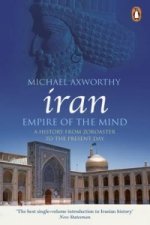
Iran: Empire of the Mind
333 Kč -
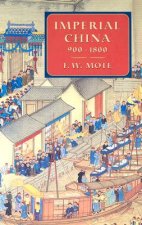
Imperial China, 900-1800
1086 Kč -

Homage to Barcelona
294 Kč -

Great Nation: France from Louis XV to Napoleon
579 Kč -

Bannockburn 1314
544 Kč -

Death in the Air
396 Kč -

Women Who Shaped Politics
579 Kč -

Battle Studies
767 Kč -

Rwanda and the New Scramble for Africa
509 Kč -

Fall of the Roman Empire
433 Kč -
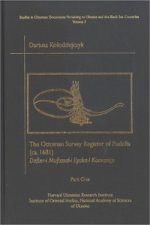
Ottoman Survey Register of Podolia (CA.1681) - Defter-i-Mufassal-i Eyalet-i Kamanice Part 1 - text,Translation and Commentary, Pt 2 - Fac 2VSet
2260 Kč -

Ten Myths About Israel
317 Kč -

Strange Death of Europe
396 Kč -

Citizens
508 Kč -
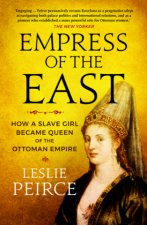
Empress of the East
333 Kč -

Anatomy of the Nuremberg Trials
344 Kč -

History of Nepal
680 Kč -

Palestine
513 Kč -

Diana: Her True Story - In Her Own Words
298 Kč -

The Fourth Turning
391 Kč -

Beyond Band of Brothers
383 Kč -

Age Of Revolution
383 Kč -

Footnotes in Gaza
558 Kč -

Conquest of New Spain
333 Kč -

Medieval Monsters
258 Kč -

Washington
487 Kč -

Palestinian-Israeli Conflict: A Very Short Introduction
316 Kč -

Memoirs from the House of the Dead
261 Kč -

Maurice's Strategikon
736 Kč -
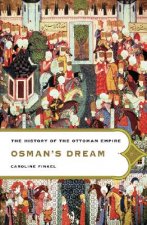
Osman's Dream
475 Kč -

Families Who Made Rome
433 Kč -

Death Traps
188 Kč -

Barber of Damascus
908 Kč -

Decline and Fall of the Roman Empire
121 Kč -
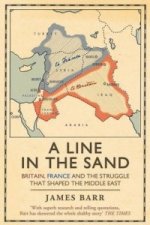
Line in the Sand
249 Kč -

History of Japan
405 Kč
Osobní odběr Praha, Brno a 12903 dalších
Copyright ©2008-24 nejlevnejsi-knihy.cz Všechna práva vyhrazenaSoukromíCookies



 Vrácení do měsíce
Vrácení do měsíce 571 999 099 (8-15.30h)
571 999 099 (8-15.30h)